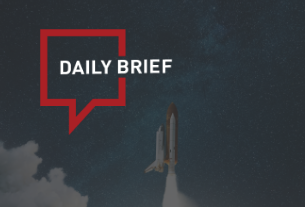Expedia Inc. bet big on how to tackle its integration of Orbitz Worldwide, acquired in September 2015, as it took the radical step of reassigning the bulk of the Expedia.com tech and product teams to work on the task of on-boarding Orbitz and its multiple brands.
But Expedia, which has become fairly skilled at integration grunt work since 2010, found out the hard way, as disclosed last week in its second quarter earnings announcement, that bolting Orbitz Worldwide — including Orbitz, eBookers, Orbitz For Business and the Orbitz Partner Network — onto Expedia platforms would be far more difficult than integrating Travelocity, which was likewise part of the Expedia shopping spree at the beginning of 2015.
The complexities of all those major acquisitions —including Wotif, Auto Escape Group, Travelocity, Orbitz Worldwide and HomeAway — within an 18-month span from July 2014 to December 2015 may have finally caught up with Expedia.
The issue is whether the pace of the deceleration of Expedia’s hotel-room night growth amounts to a one-time speed bump or prolonged gridlock. Expedia’s revenue in the second quarter grew 32 percent to $2.1 billion and that likewise missed analysts’ expectations.
Differences Between Travelocity and Orbitz Integrations
Travelocity’s two-year transition from a vastly downsized unit of parent Sabre Corp. into an Expedia-owned brand began in 2013 when Expedia and Sabre forged a marketing partnership, with Expedia becoming the backend technology provider for Travelocity, Expedia CEO Dara Khosrowshahi pointed out last week during the company’s second quarter earnings call. As the agreement took shape, Sabre still owned Travelocity while its air, hotel, and car-rental bookings transitioned onto the Expedia platform.
Travelocity essentially became a mere marketing organization, and it was Sabre that handed out the layoff notices to a big chunk of the Travelocity North America workforce. Travelocity’s Lastminute.com brand was off-loaded in Europe later and Sabre sold Travelocity for Business earlier and separately.
By the time Expedia pulled the trigger and acquired Travelocity North America for $280 million in early 2015, Expedia had inherited a pared-down organization, and it was basically only Travelocity in the U.S. and Canada that had to be brought into the Expedia family.
The Orbitz Difference
“Orbitz coming in was not only an integrating technology but also took the efforts of lots and lots of people across the company because we were essentially bringing the company in,” Khosrowshahi said. “So that’s one. The second is that Orbitz is a number of brands. It’s not just Orbitz, it’s the eBookers brand and we closed down HotelClub in Asia. We’re integrating the Orbitz Partner Network and Orbitz for Business. So it is a substantially larger and more complex integration than the Travelocity integration.”
Expedia revealed that the Orbitz integration and the resources diverted away from its core business led to the sputtering of Expedia infrastructure, causing a slowdown of its test and learn activities, more network downtime and reduced booking conversions.
Platform migrations are notoriously difficult and can be fatal to a company’s prospects. Travelocity’s error-prone integration of LastMinute.com a decade ago; Cendant/Orbitz’s problematic and five-year effort from roughly 2005 to 2009 to migrate eBookers into the Orbitz Worldwide platform, and Expedia’s own multiyear labors to transition its brands to a common platform starting in 2010 attest to the make-or-break nature of these endeavors.
Expedia had forecast all along that its hotel-room night growth would decelerate in the second quarter of 2016 because of disadvantageous comps and factors such as the timing of the Easter holiday, but the stagnation was considerably more acute than expected. Organic hotel-room-night growth fell to 12 percent in the second quarter of 2016 versus 24 percent a year earlier. And roughly 7 percentage points of that 12-point slump were tied to the Orbitz integration and consequent network quality and conversion problems.
Because of the critical nature of the Orbitz Worldwide integration stakes, including incremental revenue and cost synergies, Expedia diverted the “vast majority” of the Expedia.com tech and product teams to work on the transition, according to Khosrowshahi — and the core, organic Expedia online travel agency businesses suffered as a result.
Some experienced execs tell me that this sort of resource allocation was justified given the revenue and cost benefits involved and because tech migrations can be so complex.
Financial Analysts unanimously believe expedia on track
In addition to inefficiencies on its own sites, Expedia concedes it lost some share in metasearch channels because aBooking.com and TripAdvisor partnership shut Expedia out of TripAdvisor Instant Booking, the review site’s booking feature. Reduced conversion rates at Expedia’s own Trivago unit also adversely impacted Expedia.
Expedia pulled back in its spending within TripAdvisor’s metasearch feature because of Expedia’s own site conversion issues and this trimmed down marketing spend could negatively impact TripAdvisor in the second quarter and provide a boost to the Priceline Group, according to one analyst who declined to be identified.
Conceding that Expedia’s network infrastructure “wobbled a little bit,” CFO Mark Okerstrom argued during the earnings call last Thursday that the worst is over.
“The good news is that it is now stabilized and the teams have done a great job getting that back on track,” Okerstrom said.
Skift contacted several financial analysts who were unanimous in telling us or writing research notes arguing that Expedia’s stumbles in Q2 were likely an aberration and that there are good things to come.
“I’m not surprised with the hiccup,” said Dan Wasiolek, senior equity analyst at Morningstar Equity Research. “I think it’s just that. I see it as a near-term opportunity for Priceline. Expedia has made the TripAdvisor Instant Booking headwind comment the last few quarters so I don’t think it implies meaningful improvement for TRIP.”
Michael Olson, managing director and senior research analyst covering online travel at Piper Jaffray, believes Expedia’s room night slowdown was mostly tied to on-boarding Orbitz and not a sign that Expedia’s core online travel agency business or the travel industry itself is fundamentally weakening or off course.
“We expect the negative impact from the Orbitz integration will be alleviated in the second half of 2016,” Olson said. “The ability for the company to achieve hotel room night expectations in the third and fourth quarters will likely be tied more to trends in the category and any potential impact from terror attacks, Zika, and consumer sentiment etc.”
“Our view is that as long as Expedia is putting significant resources into acquisition integration, it is favorable for other players in the space, like Booking.com or TripAdvisor, but this will obviously not be a permanent issue,” Olson added.
The firm Raymond James stated in a research note that despite Expedia’s “self-inflicted issues,” including the Orbitz integration, the company still managed to exceed Wall Street’s EBITDA [Earnings Before Interest, Tax, Depreciation and Amortization] expectations although macro elements — including terrorism in Europe, Brexit and perhaps soft business travel demand — deserve “some caution.”
“We are comfortable that the worst of integration pains have passed,” Raymond James stated. “The tenets of our thesis — cost synergies and optimizing HomeAway — remain firmly intact, with rationalizing marketing spend and a potential Trivago IPOrepresenting new value drivers.”
Which Approach Is Best?
When Expedia was acquiring everything in site last year, Priceline Group officials stated that they would rather focus on organic growth and execution to maintain its edge and build a sustainable business.
If Expedia’s difficulties turn out to be more fundamental than a quarter or two of slowed momentum, then perhaps the strategy of the Priceline Group, which hasn’t made a major acquisition since buying OpenTable in 2014, will prove to be a clear-cut winner.
Those who might doubt Expedia’s strategy and trajectory would have to admit that its management team of Barry Diller and Dara Khosrowshahi, as outlined in Skift’s Definitive Oral History of Online Travel, assuredly have the know-how and track record to solve today’s merger-absorption challenges.
The teams over at TripAdvisor and the Priceline Group are uniquely qualified, as well. The one wild card is that the Priceline Group, currently being led by chairman and interim CEO Jeffery Boyd following the abrupt departure of then-CEO Darren Huston, has yet to name Huston’s successor.
In the interim, we’ll find out August 3 and 4 when they release their respective second quarter results whether TripAdvisor and Priceline, respectively, have been able to make strides while Expedia tripped.
A big concern for all three of these online travel company leaders — and the global travel industry as a whole — is how much a “weakening travel backdrop,” as one analyst put it, might set back their growth.
Read original article




